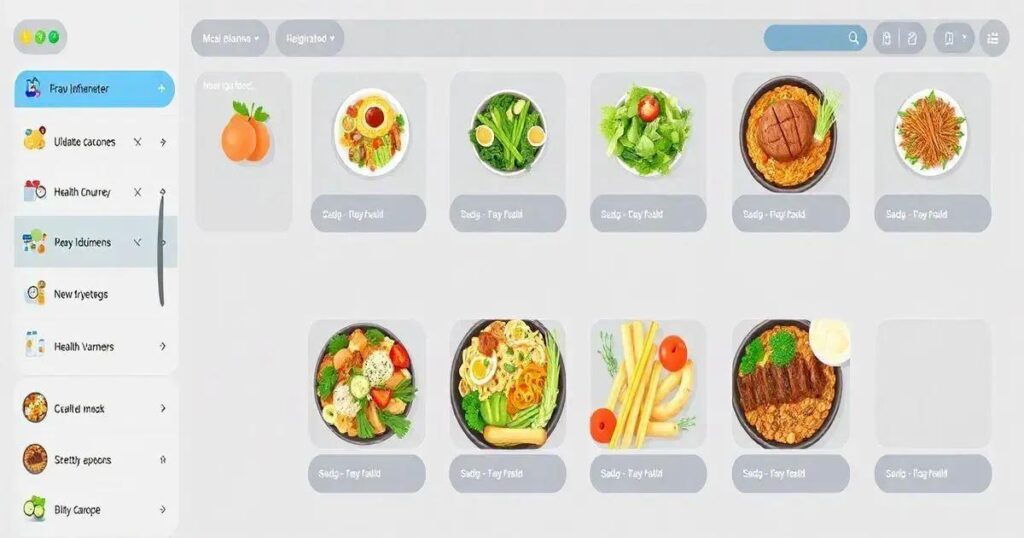AI meal planners play a key role in optimizing men’s nutrition by providing personalized meal suggestions, saving time, and promoting healthier eating habits, all while integrating future trends like wearable technology and sustainability into meal planning.
In today’s fast-paced world, maintaining a healthy diet can be challenging, especially for men with busy lifestyles. AI meal planners are revolutionizing the way men approach nutrition by offering personalized meal suggestions that fit individual dietary preferences and nutritional needs. This article will delve into the essential functions of AI meal planners, outlining the benefits they offer in promoting healthier eating habits. We will also explore practical tips on how to effectively use these advanced tools and look ahead at the future trends in AI-driven nutrition solutions.
Understanding AI Meal Planners
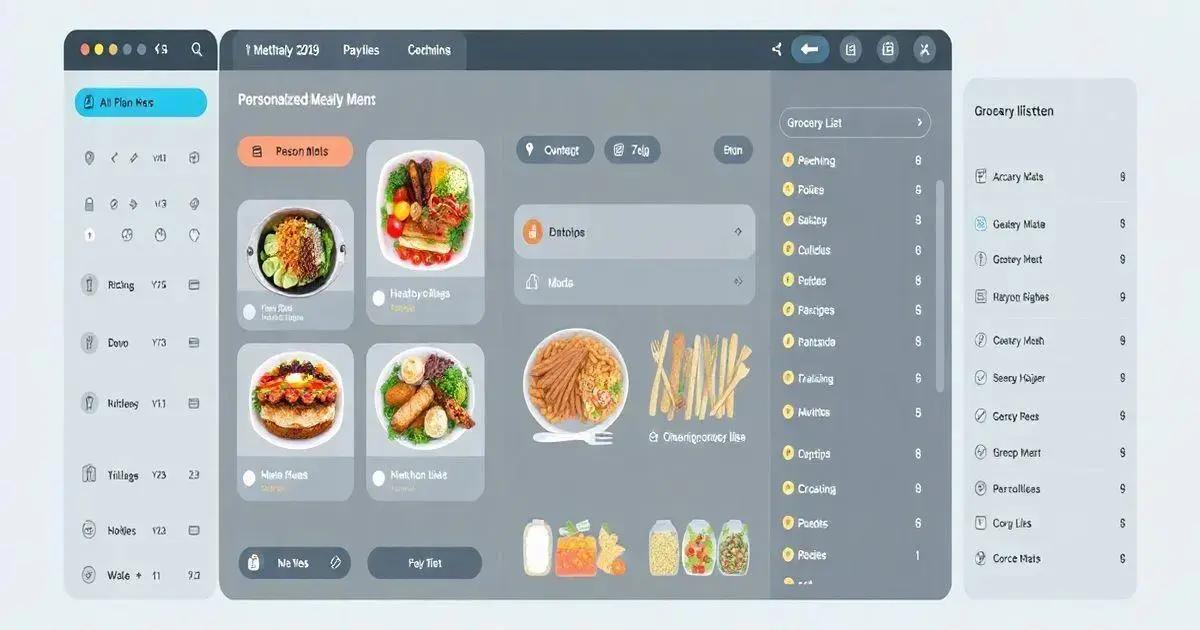
AI meal planners are smart tools that help individuals create meal plans tailored to their personal tastes and dietary requirements. By utilizing advanced algorithms and large databases of recipes, these planners analyze user input and generate meal suggestions that optimize nutritional value and convenience.
How AI Meal Planners Work
AI meal planners function by gathering data from users, such as their food preferences, allergies, and fitness goals. They then process this information to suggest meals for a certain time period, usually a week. These systems can also adjust recipes based on seasonal ingredients or user feedback, ensuring that eating healthy remains enjoyable and practical.
Types of AI Meal Planners
There are various types of AI meal planners available in the market. Some tools focus on certain diets, such as vegetarian, vegan, or ketogenic diets, catering to specific nutritional needs. Others provide comprehensive solutions that integrate grocery shopping lists and prep schedules to simplify meal preparation.
The Impact of AI on Meal Planning
The impact of AI on meal planning cannot be overstated. By automating the process, individuals can save valuable time and reduce the stress often associated with meal preparation. AI meal planners promote healthier choices by encouraging balanced meals and helping users avoid the temptation of fast food or unhealthy snacks.
In recent years, AI meal planners have evolved rapidly, helping users not just plan meals but also track their nutritional intake and even suggest grocery shopping lists. This innovation makes it easier for men to make informed dietary decisions that can lead to better overall health.
Benefits of AI in Nutrition
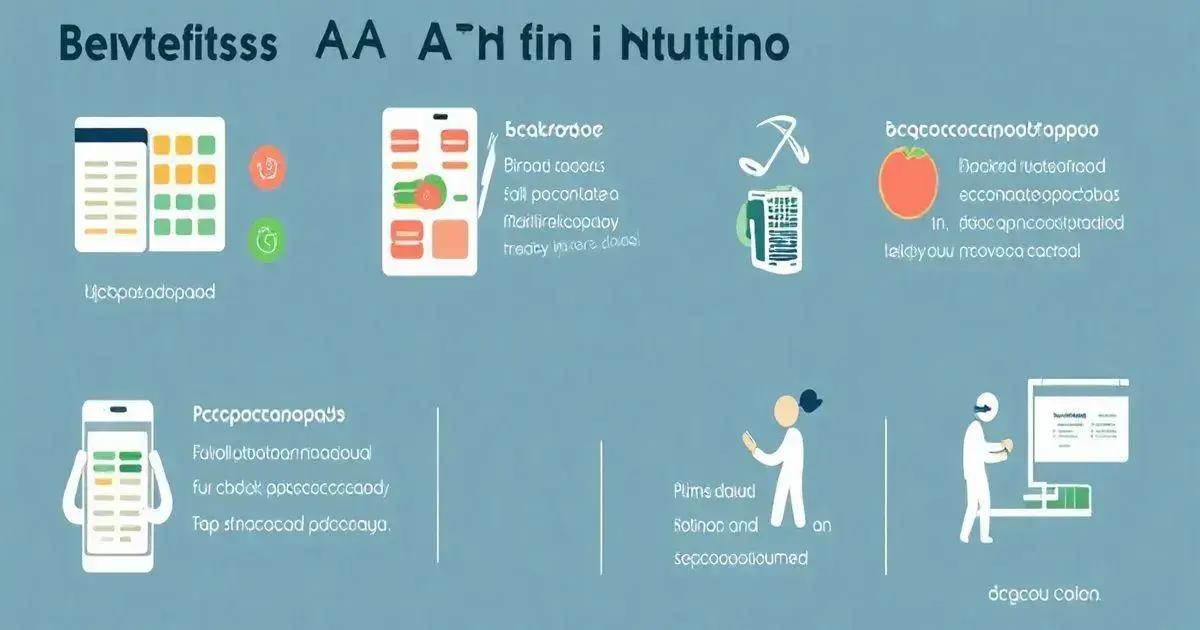
The benefits of AI in nutrition are significant and far-reaching. One major advantage is the personalization of meal plans. AI meal planners analyze individual dietary needs and preferences, allowing users to enjoy meals tailored specifically to them.
Improved Nutritional Knowledge
Another benefit is the enhanced nutritional knowledge that AI provides. These planners can analyze the nutritional content of meals and suggest healthier alternatives. This helps users make informed food choices, ensuring they meet their dietary goals.
Saves Time and Effort
AI tools also save time and effort. They automate the meal planning process, which means users spend less time deciding what to eat and more time enjoying their meals. This can lead to better consistency in following a healthy diet.
Encouragement of Healthy Eating Habits
Furthermore, AI meal planners encourage healthy eating habits by reminding users of portion sizes, caloric intake, and balanced meals. These reminders help men to avoid unhealthy snacking and eating habits, promoting a balanced diet.
Lastly, AI helps track progress over time. Many meal planning apps come with features that allow users to log their food intake, track their weight, and monitor overall health metrics. This ongoing feedback is vital for achieving long-term dietary success.
How to Use AI Meal Planning Tools
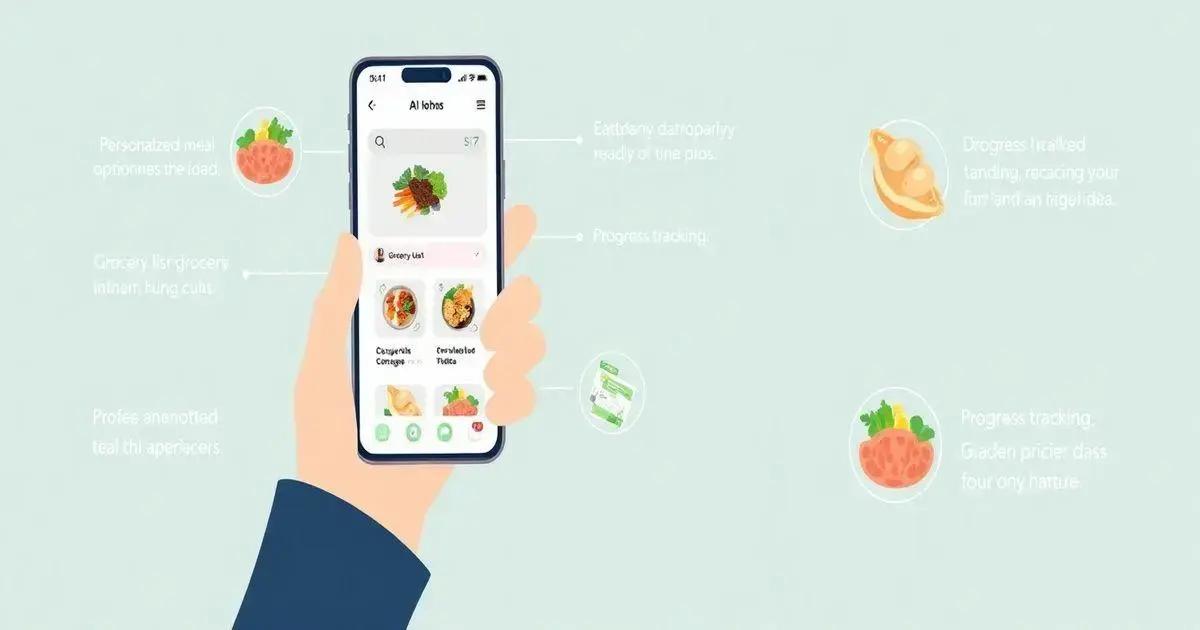
Using AI meal planning tools is a straightforward process that can significantly enhance your dietary habits. Here’s how you can effectively use these tools to your advantage.
Step 1: Select the Right Tool
Begin by researching various AI meal planning apps available in the market. Look for tools that offer features tailored to your needs, such as dietary preferences, grocery lists, and recipe databases. Popular options include apps that focus on specific diets, like keto or vegan, as well as more generalists that offer a variety of meal plans.
Step 2: Input Personal Data
Once you’ve chosen an app, set up your profile by entering your dietary preferences, restrictions, and health goals. This information allows the AI to provide personalized meal suggestions that align with your nutrition needs.
Step 3: Explore Meal Options
After inputting your data, browse through the meal options presented by the tool. Most AI meal planners will suggest weekly meal plans based on your preferences. Take the time to review and adjust these suggestions according to your liking. Many apps allow you to swap meals easily if you want something different.
Step 4: Generate Shopping Lists
Once you finalize your meal plan, use the app to create a grocery list. The AI will organize all the necessary ingredients, making shopping convenient. This feature helps ensure you have everything you need and reduces impulse buys.
Step 5: Track Progress
Many AI meal planning tools include progress tracking features that allow you to log your food intake, track changes in your health, and analyze your overall nutrition. Regularly updating this information can help you stay accountable and motivate you to stick to your dietary goals.
By following these steps, you can effectively implement AI meal planning tools in your daily routine, making it easier to optimize your nutrition and make healthier choices.
Future Trends in AI Meal Planning
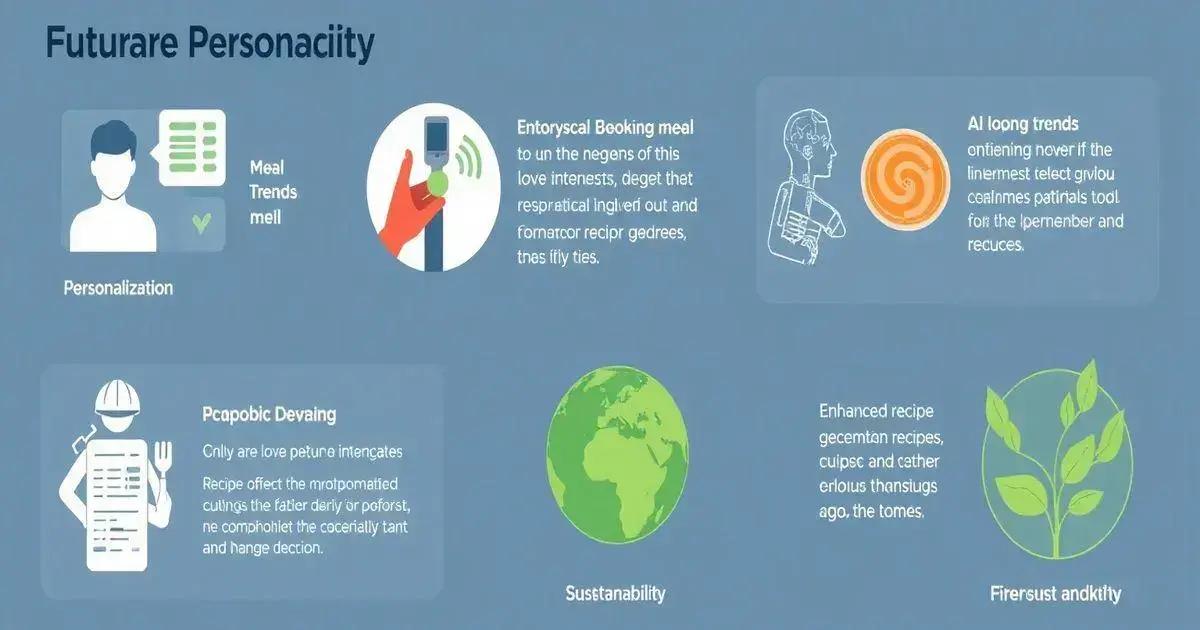
Looking ahead, the future trends in AI meal planning promise exciting developments that will make healthy eating even easier and more personalized. Here’s a look at what to expect.
Increased Personalization
One major trend is the growing ability of AI meal planners to offer deeper personalization. As technology advances, these tools will consider not just dietary preferences, but also individual health data and genetic factors. This means tailored meal plans that align even more closely with a person’s nutritional needs.
Integration with Wearable Devices
AI meal planning tools are expected to increasingly integrate with wearable health devices. This will allow real-time data collection on users’ activity levels, heart rate, and biometrics. With this information, AI can suggest meals that are perfectly timed to support users’ energy levels and fitness routines.
Enhanced Recipe Generation
Future AI tools may enhance recipe generation by utilizing machine learning algorithms to create new dishes. By analyzing what users like and the nutritional value of ingredients, these tools could invent healthy recipes that cater specifically to users’ tastes.
Focus on Sustainability
Another trend to watch for is a focus on sustainability. AI meal planners are likely to prioritize local and seasonal ingredients, encourage plant-based meals, and help reduce food waste through smarter grocery lists and portion size suggestions. This aligns with increasing consumer demand for environmentally friendly food choices.
These trends reflect a larger movement towards integrating technology with nutrition, aiming not only to make meal planning easier but also to improve overall health and well-being.
The Future of Nutrition with AI
In conclusion, the role of AI meal planners in optimizing men’s nutrition is transformative. These tools not only provide personalized meal suggestions but also save time and effort in meal preparation.
As we have explored, AI meal planners enhance nutritional knowledge, encourage healthy eating habits, and are easy to use. With trends pointing towards increased personalization, integration with wearable devices, enhanced recipe generation, and a focus on sustainability, the future of nutrition looks promising.
By embracing AI meal planning tools, men can take control of their health and make informed dietary choices that lead to better overall well-being.
FAQ – Frequently Asked Questions about AI Meal Planners
What are AI meal planners?
AI meal planners are digital tools that use artificial intelligence to create personalized meal plans based on user preferences, dietary restrictions, and health goals.
How can AI meal planners improve my nutrition?
AI meal planners can help you make healthier food choices by providing tailored meal suggestions and tracking your nutritional intake, ensuring you meet your dietary goals.
Are AI meal planning tools easy to use?
Yes, most AI meal planning tools are designed for user-friendly navigation, allowing users to input preferences and generate meal plans with ease.
Can AI meal planners cater to specific diets?
Absolutely! Many AI meal planners can customize meal plans for various diets, such as keto, vegan, vegetarian, or gluten-free.
What features should I look for in an AI meal planning tool?
Look for features such as meal customization, grocery list generation, nutrient tracking, and integration with wearable fitness devices for optimal use.
Is it possible to track my progress using AI meal planners?
Yes, many AI meal planning apps allow you to log your food intake and track your weight or health metrics over time, giving you valuable feedback on your dietary habits.

